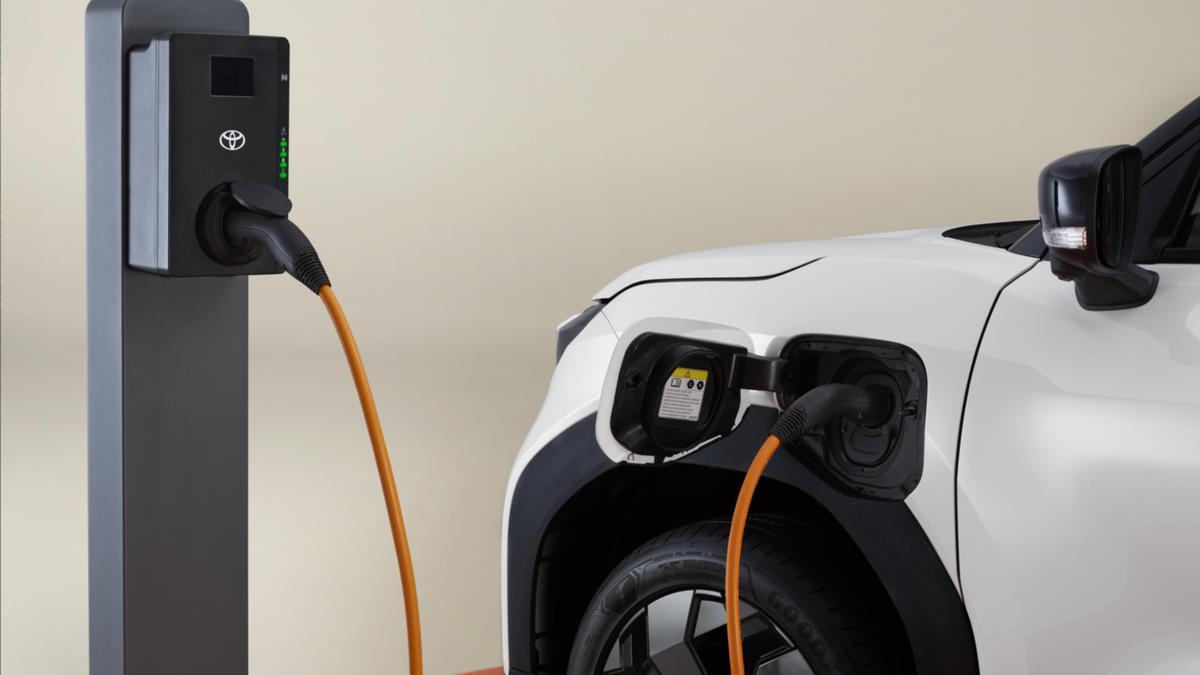What to know about the U.S.-Ukraine minerals deal

The joint economic investment deal announced Wednesday that gives the U.S. access to Ukrainian minerals may provide Ukraine with more support for its defense against Russia. But it also comes at a key moment for the American economy amid its growing trade war with China, a major producer of rare earths and other critical minerals. The new deal was described by Yulia Svyrydenko, Ukraine's economic development minister, as an equal partnership between the U.S. and Ukraine that includes development of mineral, oil and gas projects. The U.S. will provide either direct financial assistance or new military assistance to Ukraine, which will contribute half of any royalties from future oil, gas and mineral licenses. The pact comes as America's access to rare earth minerals, which are key to manufacturing high-tech products like computer chips and military equipment, has diminished after China last month announced export restrictions on some of these minerals in retaliation for U.S. tariffs. Although Mr. Trump has suggested buying Greenland, which has rare earths and critical minerals as well as oil and natural gas, Ukraine may provide a more readily available source for these strategically vital natural resources, experts say. "You hear a lot about Greenland, but that is a very, very long term play with a lot of building up of infrastructure and a lot of ice-melting, to be fair," Heidi Crebo-Rediker, an expert with the Council on Foreign Relations, told CBS News. By contrast, Ukraine has the workforce and the metallurgical know-how to extract and develop these rare earth minerals, she added. Here's what to know about the U.S.' deal with Ukraine. What does the U.S.-Ukraine minerals deal cover?The deal covers minerals, including rare earth elements, but also other valuable resources, including oil and natural gas, according to the text released by Ukraine's government.It does not include resources that currently generate revenue for the Ukrainian state. In other words, any profits under the deal are dependent on the success of new American investments. Ukrainian officials have also noted that the deal does not refer to any debt obligations for Kyiv, meaning profits are unlikely to go toward paying the U.S. back for its previous financial support for the country in its war with Russia, according to Svyrydenko.The text of the deal lists 55 minerals subject to the U.S-Ukraine agreement, but says more can be added to the pact. Mr. Trump has repeatedly expressed interest in Ukraine's rare earth elements, and some of them are included in the list, as are other critical minerals, including titanium, lithium and uranium.What are rare earth minerals?Rare earth minerals are a set of 17 metallic elements, such as scandium and yttrium, according to U.S. Geological Survey. Scandium is used in aluminum alloys for aerospace parts, while yttrium is used in LEDs and solid oxide fuel cells, according to Stanford Advanced Materials, a scandium supplier.China is the the world's largest producer of rare earths, data from the Geological Survey shows.Aside from rare earth minerals, China also dominates production of critical minerals such as lithium and graphite, which are both essential for producing batteries used in electric vehicles and other devices.How large are Ukraine's mineral reserves?Ukraine holds about 5% of total global mineral reserves, which include both critical minerals and rare earth elements, according to Capital Economics, which cited the Ukrainian Geological Survey. "Monetary estimates of Ukraine's reserves vary wildly. However, there is a lot of skepticism over the accuracy of Ukraine's national estimates given they reportedly rely on outdated Soviet-era assessments," Capital Economics said in a May 1 research note. Currently, Ukraine's critical minerals generate less than $200 million in annual export revenues, analysts with the investment advisory firm said. "[T]he reality is that most of Ukraine's mineral reserves are unlikely to be economically viable, especially in the near term," they added.Ukraine has large deposits of cobalt and nickel, which are important for high-performance batteries, Crebo-Rediker said.What's happening with China's minerals?China placed new restrictions on seven heavy rare earth minerals on April 4, including scandium and yttrium, in retaliation against U.S. tariffs."Beijing has a history of responding to measures such as tariffs and tech controls from Washington by imposing curbs on exports of raw materials to the U.S.," Capital Economics analysts wrote in a May 1 report. They added, "Under President Trump, it seems that developing alternative sources of supply will remain a key priority, which could limit any disruption to supply chains from geopolitics in the medium term and reduce Western reliance on China and its allies."China has a "a near complete chokehold on another important critical material — graphite," Crebo-Rediker added. "Ukraine is the fifth-largest producer of graphite and also gallium, which is restricted by China right now."What is the state of Ukraine's minerals industry?Ukraine's rare earth elements are largely untapped because of state policies regulating the industry, a lack of good information about deposits and the war with Russia. The industry's potential is also unclear given that mineral reserves are scattered across Ukraine, and existing studies are considered largely inadequate, according to analysts.In general, however, Ukraine's natural resources are considered to have signifiant commercial potential. The country's reserves of titanium, a key component for the aerospace, medical and automotive industries, are believed to be among Europe's largest. Ukraine also holds some of Europe's largest known reserves of lithium, which is required to produce batteries, ceramics and glass.In 2021, the Ukrainian minerals industry accounted for 6.1% of the country's gross domestic product and 30% of exports.An estimated 40% of Ukraine's metallic mineral resources are inaccessible because of Russian occupation, according to data from We Build Ukraine, a Kyiv-based think tank. Ukraine has argued that it's in Mr. Trump's interest to develop the remainder before Russian advances capture more.



















